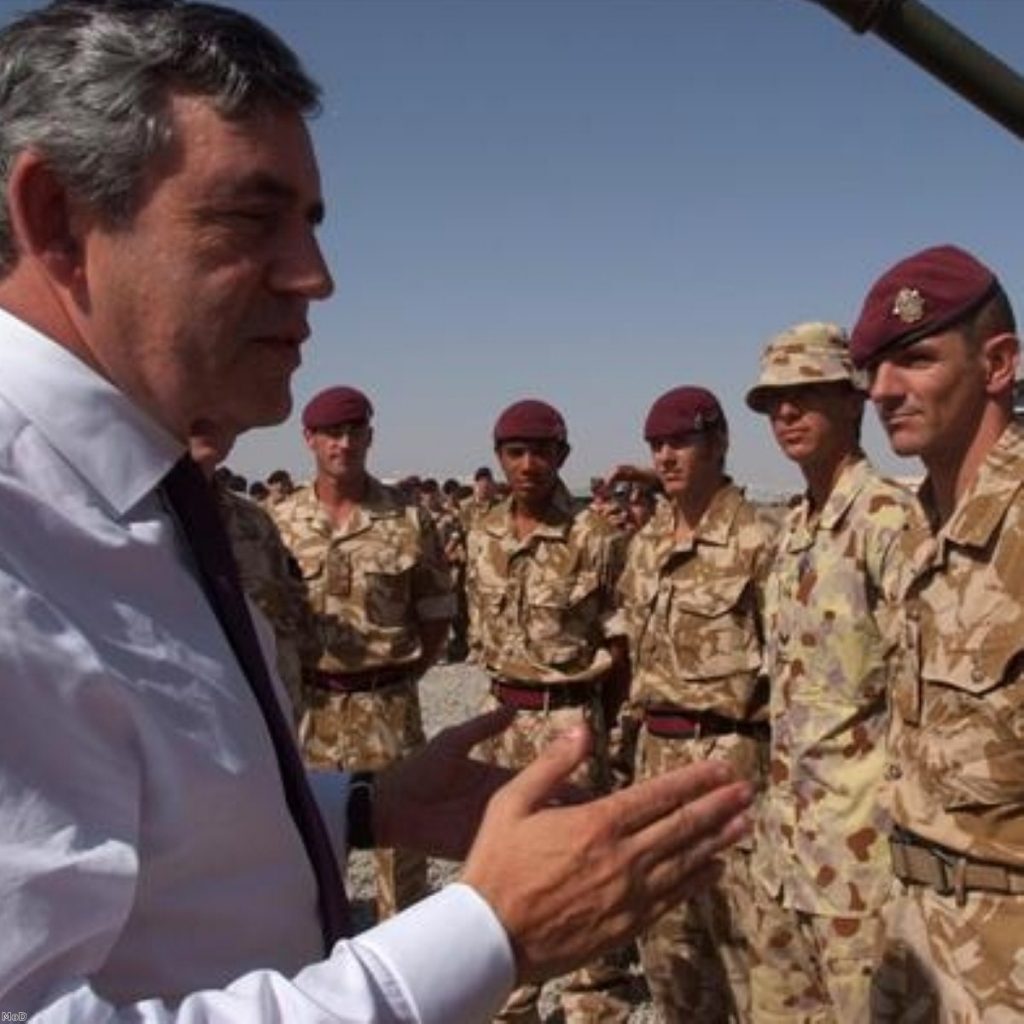Analysis: The Afghanistan fightback
Gordon Brown appears to be winning the political war for support on Afghanistan – for now.
Things weren’t so rosy in the summer, when public confidence in the war effort was battered down by a brutally unfortunate double-whammy of stories.
Firstly, the government appeared overwhelmed by accusations it was not providing British armed forces with the right equipment. A reliance on American Chinooks and inadequately armoured patrol vehicles only scratched the veneer of disquiet.


Then came the disastrous presidential election of August 20th, a calamitous process utterly discredited by electoral fraud. The coming weeks undermined Hamid Karzai’s re-election further and further, until his only challenger withdrew from a second round.
The presidential poll should have been a propaganda victory for British forces. The military operation clearing out the Taliban from central Helmand province should have paved the way for secure and safe elections to be held. On the day the deaths were slight. But the overall spike in casualty figures did not seem to have been justified. The British public were, inevitably, disgusted.
Brown’s misspelt letter appears to have provided an unexpected turning-point. Last month the Sun newspaper, at last overtly supporting the opposition, revealed his failure to spell the surname of a fallen soldier in a handwritten letter. The public were appalled. All the more surprising, therefore, that the painfully frank press conference in Downing Street which followed can now be seen to have kickstarted a fightback in the struggle for public opinion on the home front.
Not for the first time, Barack Obama helped come to the rescue. His launch of a new strategy, sending in 30,000 more American soldiers in a repeat of George Bush’s 2006 Iraq ‘surge’, means international developments on Afghanistan are working in the government’s favour.
Yes, the government must keep running to stand still. It has set a demanding pace, outlining a clear exit strategy which requires the slow transfer of power to Afghan security forces.
Doing so requires rapid progress in 2010, but when it comes to British soldiers dying overseas only the quickest sprint will suffice.
For the prime minister, the important point is that a plan is in place. Operating entirely independently of developments in central Asia, Britain’s electoral clock is ticking down.
Whether it’s ticking to March 25th or May 6th, the two likely dates, Brown’s priority on Afghanistan will be to maintain the present lull in criticism, caused by the perception that a newly-implemented strategy is slowly creating results.
There will always be opportunities to quicken the erosion of this relatively comfortable position. Today, for example, defence secretary Bob Ainsworth is seeking to portray years of procurement failures in his department in a positive light by pointing to the need to service the Afghan effort.
Overall, though, Brown must hope developments in Afghanistan work his way in the months before Britain votes.
He will be helped by the fact that London will play host to the first major international conference on Afghanistan on January 28th. Huge global publicity in the run-up to the election will give his image as Brown the statesman a welcome boost.
It seems the electoral threat Afghanistan posed to the government is diminishing, although in a warzone setbacks can quickly reverse months of painstakingly slow progress.
Afghanistan remains a liability, but the crisis brewing in 2009 appears to have passed.

